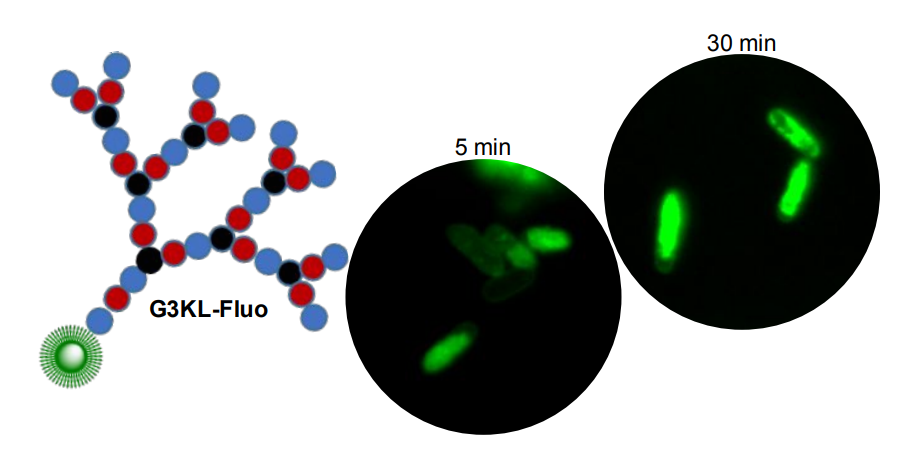Fluorescence Imaging of Bacterial Killing by Antimicrobial Peptide Dendrimer G3KL

The paper Fluorescence Imaging of Bacterial Killing by Antimicrobial Peptide Dendrimer G3KL has just been accepted by ACS Infectious Diseases.
We recently discovered that peptide dendrimers such as G3KL ((KL)8(KKL)4(KKL)2KKL, K = branching L-lysine) exert strong activity against Gram-negative bacteria including Pseudomonas aeruginosa, Acinetobacter baumannii and Escherichia coli. Herein we report a detailed mechanistic study using fluorescence labeled analogs bearing fluorescein (G3KL-Fluo) or dansyl (G3KL-Dansyl), which show a similar bioactivity profile as G3KL. Imaging bacterial killing by super-resolution stimulated emission depletion (STED) microscopy, time-lapse imaging and transmission electron microscopy (TEM) reveals that the dendrimer localizes at the bacterial membrane, induces membrane depolarization and permeabilization, and destroys the outer leaflet and the inner membrane. G3KL accumulates in bacteria against which it is active, however it only weakly penetrates into eukaryotic cells without inducing significant toxicity. G3KL furthermore binds to lipopolysaccharide (LPS) and inhibits LPS induced release of TNF-α by macrophages similarly to polymyxin B. Taken together, these experiments show that G3KL behaves as a potent membrane disruptive antimicrobial peptide.
Author(s): Bee-Ha Gan, Thissa N. Siriwardena, Sacha Javor, Tamis Darbre, Jean-Louis Reymond